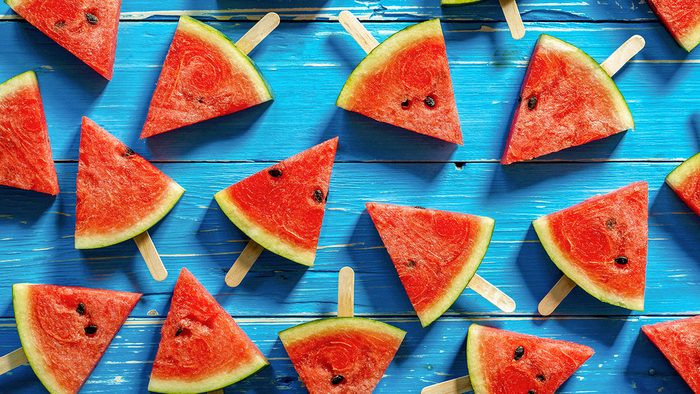
Watermelon
This summer treat is sweet and refreshing, but it is one of the sneakier foods that cause gas and stomach bloat. Watermelon is high in fructose, a naturally occurring sugar that is often incompletely absorbed by our gastrointestinal tract (GI), leading to gas. Experts estimate one in three people suffer from fructose malabsorption.
Make dock days even better this summer with a glass of Boozy Watermelon Punch.
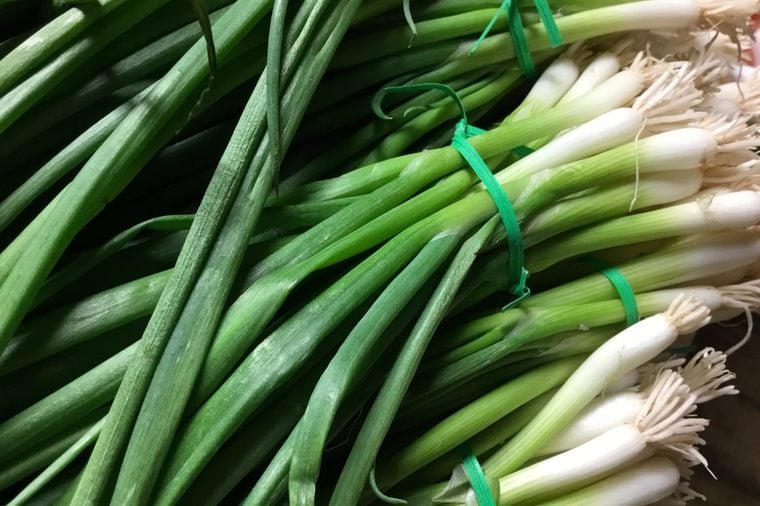
Scallions (and other aromatics)
Veggies with strong flavours, like scallions (just the white part), garlic, onions, shallots, and leeks (just the white bottom) are high in fructans, a type of fibre made up mostly of fructose molecules, making them foods that cause gas. Humans lack the enzymes to break down fructans, so no one is able to fully digest them, leading to gut problems like gas and bloating.
Add garlic to everything? Here are 13 surprising benefits you should know about.
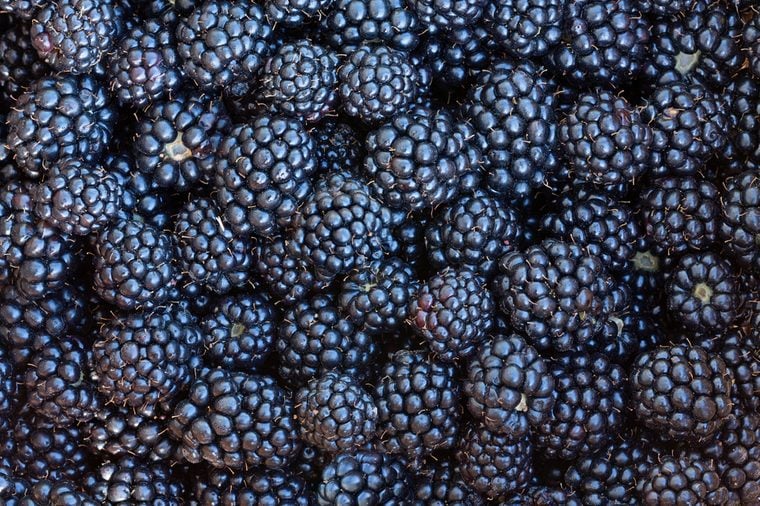
Blackberries
Blackberries are rich in antioxidants, but they’re also packed with polyols, the main component in sugar substitutes (which are often blamed for abdominal distress). Polyols tend to hang around our digestive system for a long time and usually aren’t completely absorbed, which can lead to bloating or excessive flatulence.
Try powering your mornings with this Blackberry Acai Smoothie Bowl.
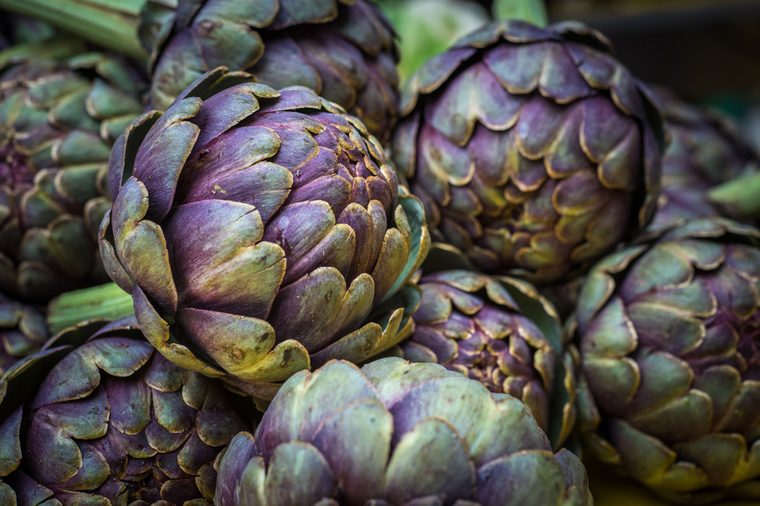
Artichokes
Beware of this veggie if you’re trying to battle bloat. It’s high in fructans, a fibre that is undigestible and found in foods that cause gas and bloating problems. These foods will help detox your body naturally.
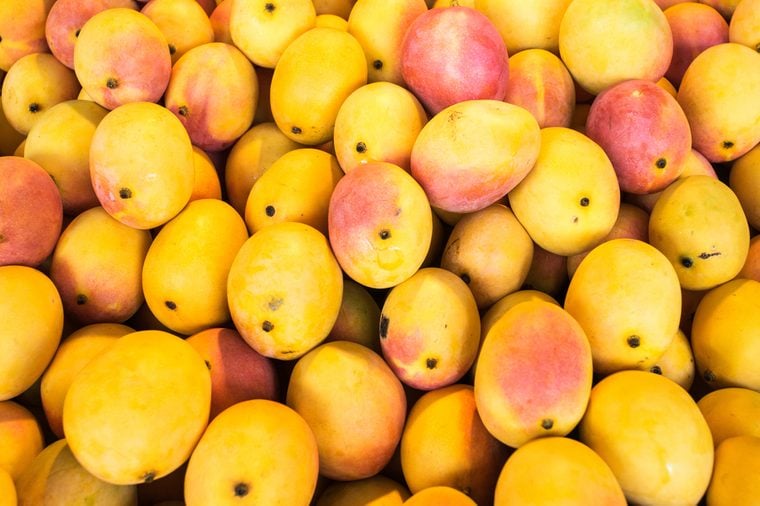
Mangoes
Mango is one fruit that contains more fructose than glucose, an imbalance that makes it harder for the fructose to be absorbed by our body. When this happens, bloating or other stomach problems can arise. Here are 9 daily habits to reduce bloating.
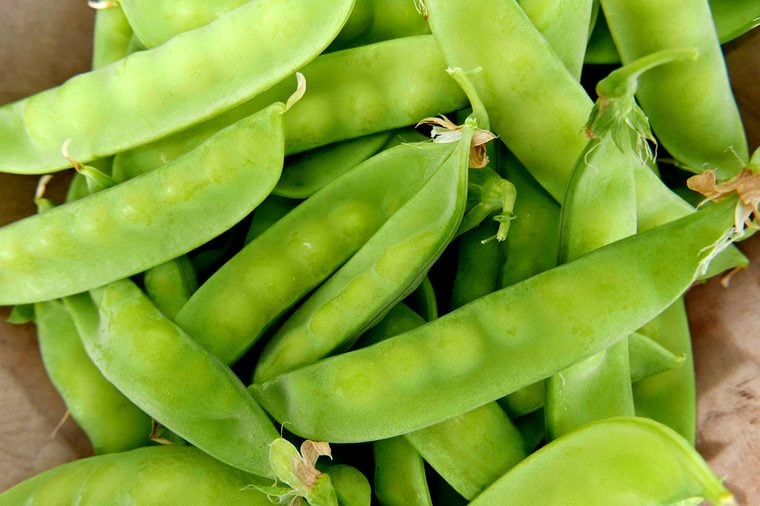
Snow peas
The snap of a snow pea is refreshing, but it can leave your belly feeling anything but. Snow peas contain galacto-oligosaccharides (GOS), a chain of sugars that are hard to digest and end up feeding gut bacteria, a cause of bloating. Snow peas also contain fructans and are high in polyols, which are often only partially absorbed by the body, another cause of stomach problems. These are the best foods for your belly.
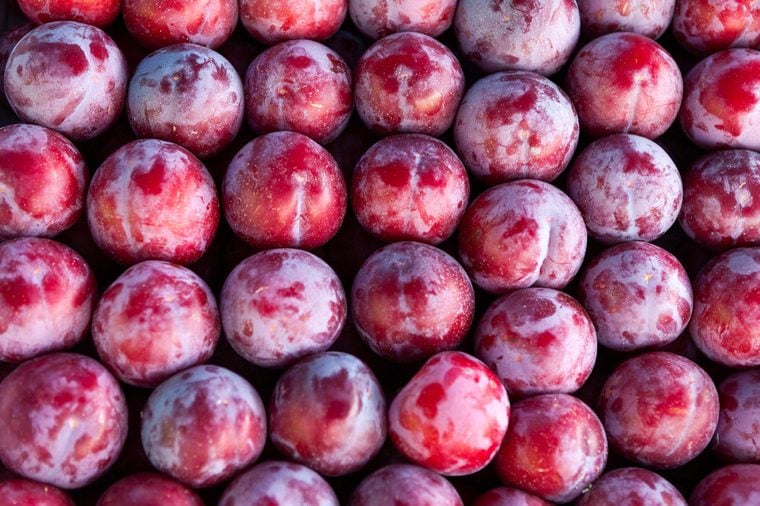
Plums
Plums are packed with polyols (often called sugar alcohols because of their structure), and because they’re fermented by gut bacteria, this leads to stomach problems like bloating. Find out more about the health benefits of plums.
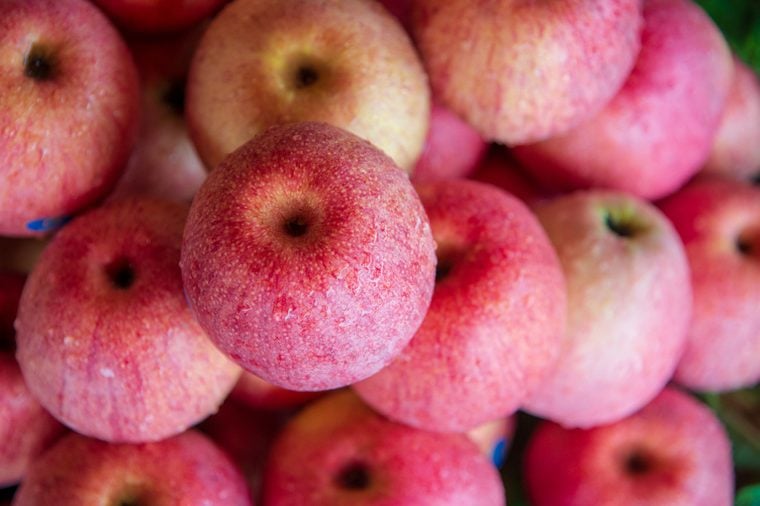
Apples
Apples can be a trigger for those who suffer from fructose malabsorption, which occurs when the natural sugar is unable to be absorbed by the body. Fructose malabsorption leads to bloating, diarrhea, and other digestive issues.
Suffer from IBS? Here are 8 diet changes you need to make.
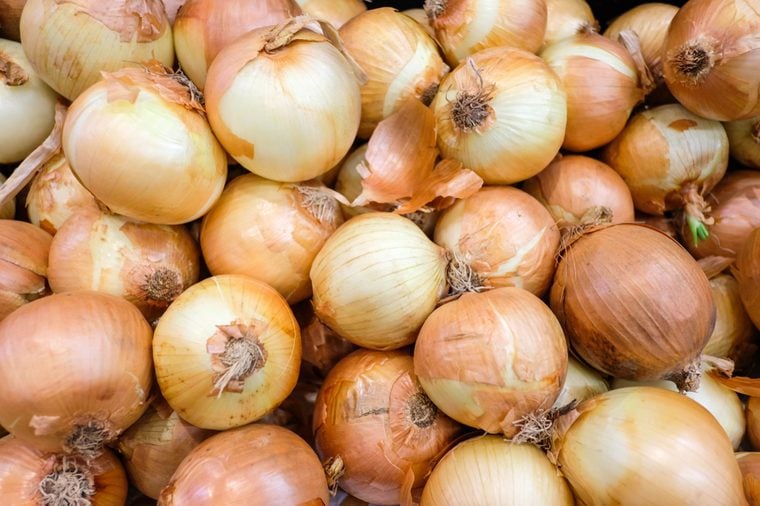
Onions
Like other foods that cause gas, onions contains a natural sugar called fructose. Healthline.com reports that this sugar contributes to gas when bacteria in the intestines break it down. Onions are also considered high FODMAP foods, meaning they contain types of carbohydrates that cause gastrointestinal problems such as bloating. Find out how activated charcoal can soothe your symptoms.
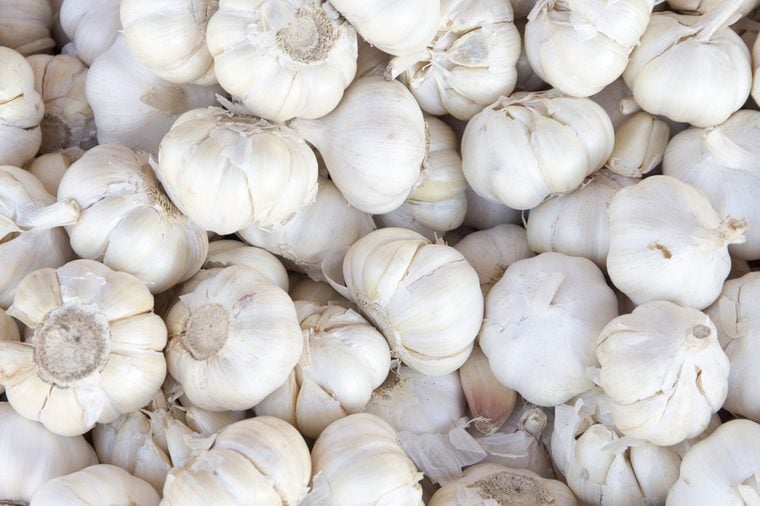
Garlic
Another high FODMAP food is garlic. In addition, research shows that garlic allergies or intolerance to other compounds found in the food is common—making it another one of the many foods that causes gas.
Next, don’t miss these these simple home remedies for indigestion.
